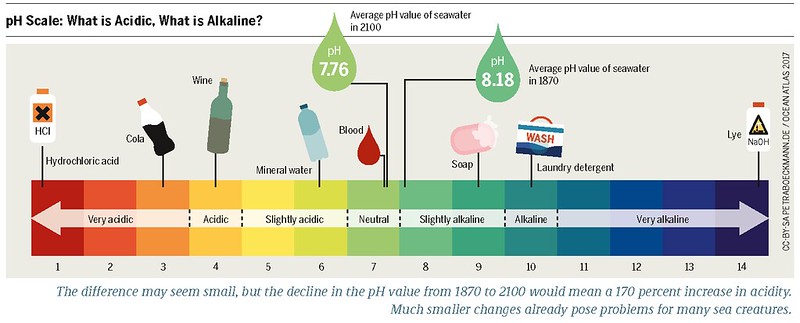The pH of reagent grade water, also known as Type I water, is typically between 5.5 and 7.5, with a pH of 7 being the most common. This is because the pH of pure water is determined by the concentration of hydrogen ions present in it, which can vary depending on the substances already present in the water. Reagent grade water is highly purified water that is used in laboratory applications where minimal interference from ions, organics, bacteria, and other contaminants is required.
Understanding the Importance of pH in Reagent Grade Water
Reagent grade water is characterized by its resistivity, conductivity, total organic compounds (TOC), sodium chloride, and silica content. The purity of reagent grade water is determined by its resistivity, with higher resistivity indicating higher purity. Type I water has a resistivity of >18 MΩ-cm, a conductivity of <0.056 µS/cm, and <50 ppb of TOC.
Despite its high purity, reagent grade water can still be prone to contamination from various sources, including inorganic ions, dissolved organics, particulates, microorganisms, and gases. These contaminants can affect and influence reactions by serving as unintentional catalysts, disrupt cell culture experiments, decrease the sensitivity and resolution in liquid chromatography, interfere with instrument function, and cause an array of issues and faulty data due to bacterial levels and their pyrogen byproducts.
Ensuring Reliable and Repeatable Results
To ensure the reliability and repeatability of results, it is important to use reagent-grade water that has had these key contaminants removed to varying degrees to produce application-specific water types. This can be achieved through the use of best practice rinsing and testing techniques, such as:
- Preparing one test portion and one or more rinse portions.
- Immersing and gently agitating the pH electrode in the rinse portion(s) before placing it into the test portion.
- Measuring the pH immediately after adding a drop of neutral salt solution to the test water.
In addition to these best practices, it is also important to handle the pH electrode properly by:
- Storing it in electrode storage solution to restore the bulb surface composition.
- Cleaning it to refresh the pH bulb and/or the junction.
- Using the cleanest possible water for rinsing.
For the most accurate results, it is recommended to use a Thermo Scientific™ Orion™ ROSS Ultra™ or ROSS pH electrode and the Orion Pure Water pH test kit, which has been developed to minimize the problems encountered when measuring pH in pure waters.
Factors Affecting the pH of Reagent Grade Water
The pH of reagent grade water can be influenced by several factors, including:
- Dissolved Gases: The presence of dissolved carbon dioxide can lower the pH of the water, making it more acidic.
- Leaching from Containers: The materials used to store and transport the water can also affect its pH, as some materials may release ions that alter the pH.
- Microbial Activity: Microorganisms present in the water can produce metabolic byproducts that can change the pH.
- Impurities: Even trace amounts of impurities, such as inorganic ions or organic compounds, can affect the pH of the water.
To maintain the desired pH range of 5.5 to 7.5, it is essential to follow best practices for water purification, storage, and handling, as well as regular monitoring and testing.
Conclusion
The pH of reagent grade water is a critical factor to consider in laboratory applications where minimal interference from contaminants is required. By understanding the challenges associated with measuring pH in pure water and other low conductivity liquids, and by following best practices for rinsing and testing, it is possible to ensure that pH measurements are reliable and repeatable. By adhering to these guidelines, researchers and scientists can ensure the accuracy and integrity of their experimental results.
References:
– What is the pH of DI Water?
– A Quick Primer on Reagent Grade Water
– Measuring pH in Pure Water and Other Low Conductivity Liquids
– What is the pH of DI Water?
– Thermo Scientific Chemistry Reagent Deionized Water, pH 7.0 Liquid
– Different Types of Pure Water for the Lab: What You Need to Know

